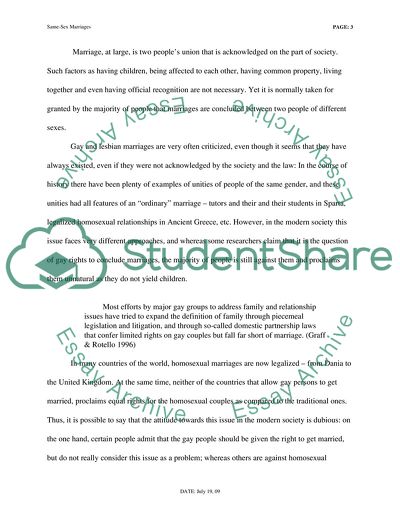The Evolution of Views upon Gay Marriages Research Proposal Example | Topics and Well Written Essays - 1500 words. https://studentshare.org/gender-sexual-studies/1725868-should-same-sex-marriages-be-legalized
The Evolution of Views Upon Gay Marriages Research Proposal Example | Topics and Well Written Essays - 1500 Words. https://studentshare.org/gender-sexual-studies/1725868-should-same-sex-marriages-be-legalized.


